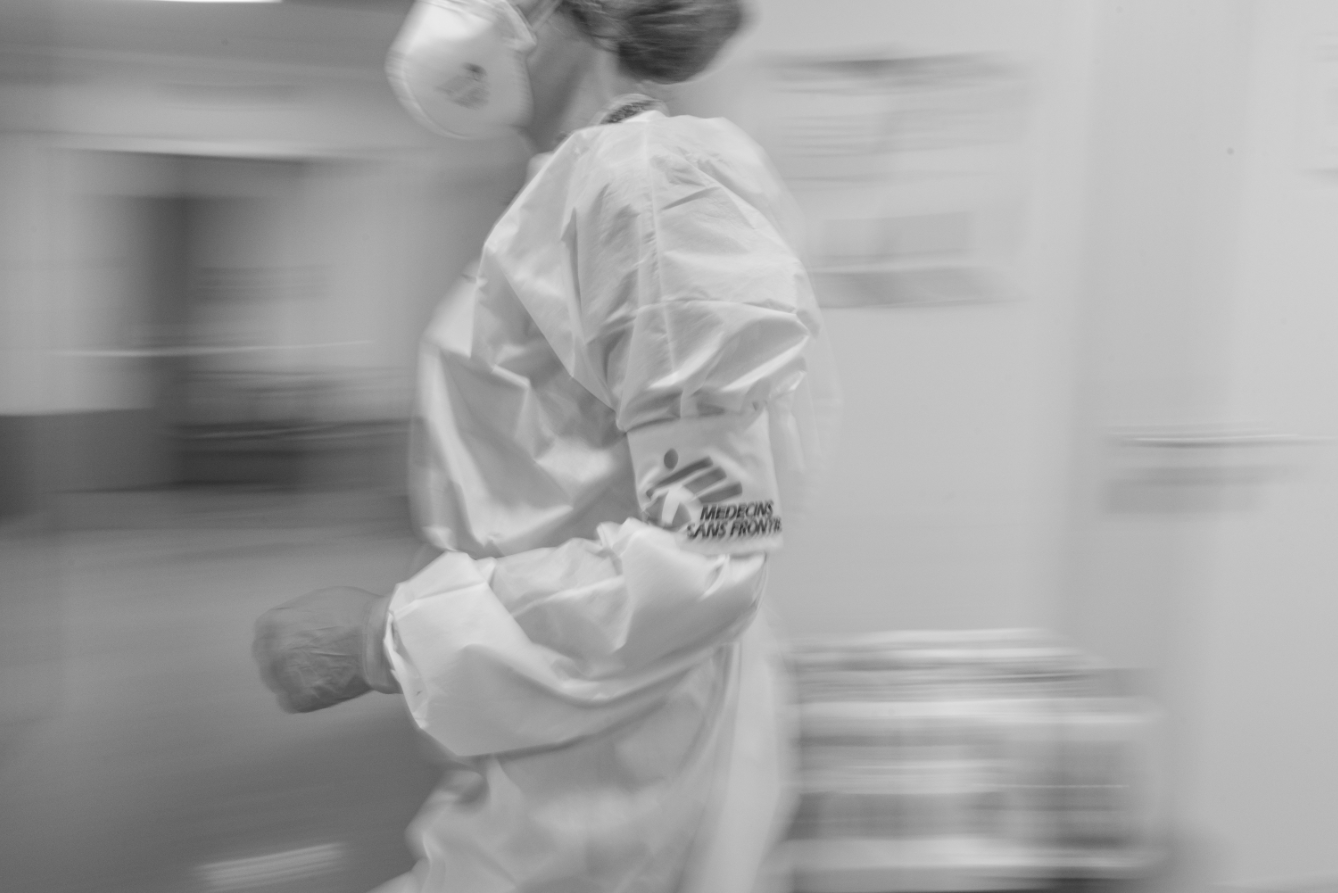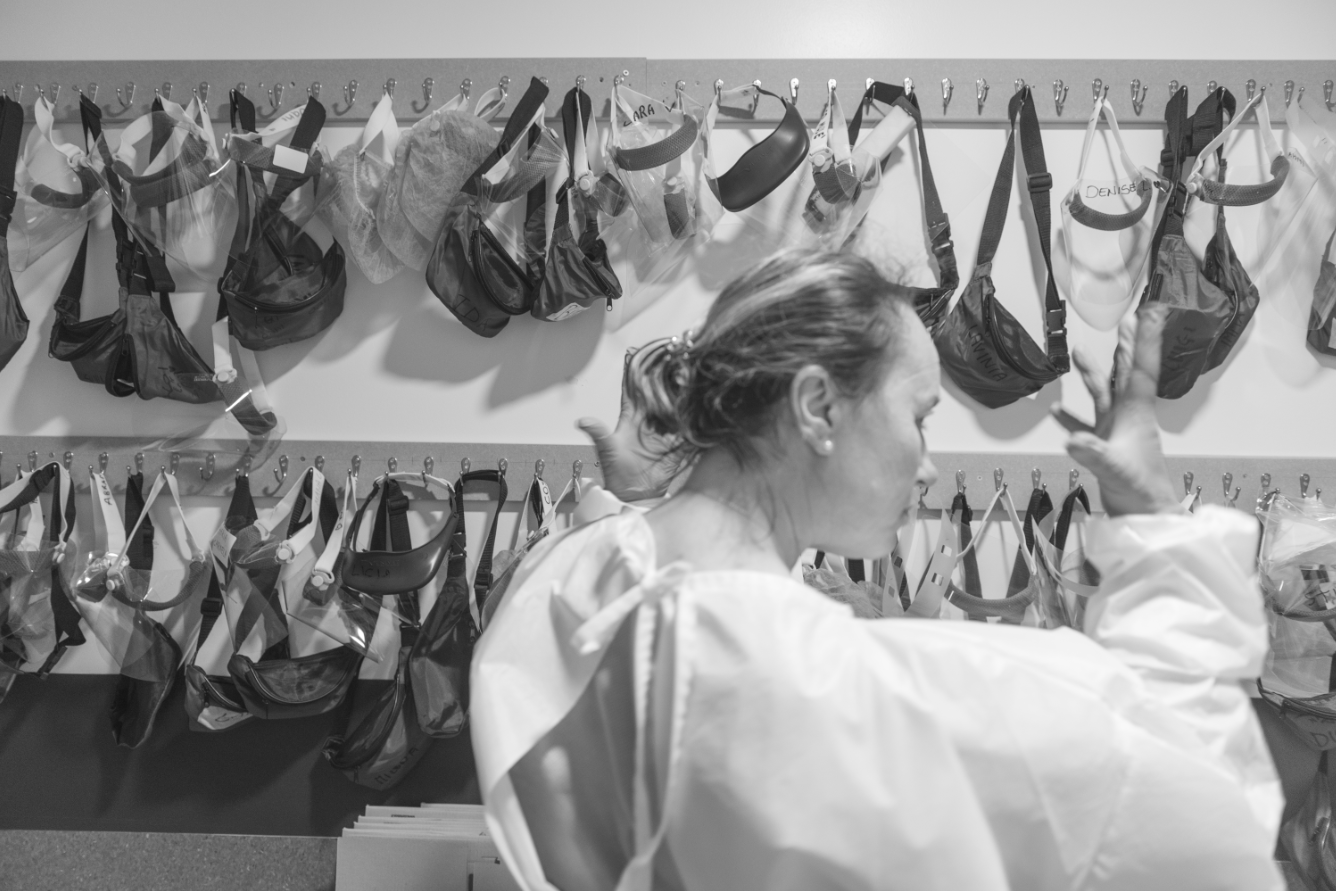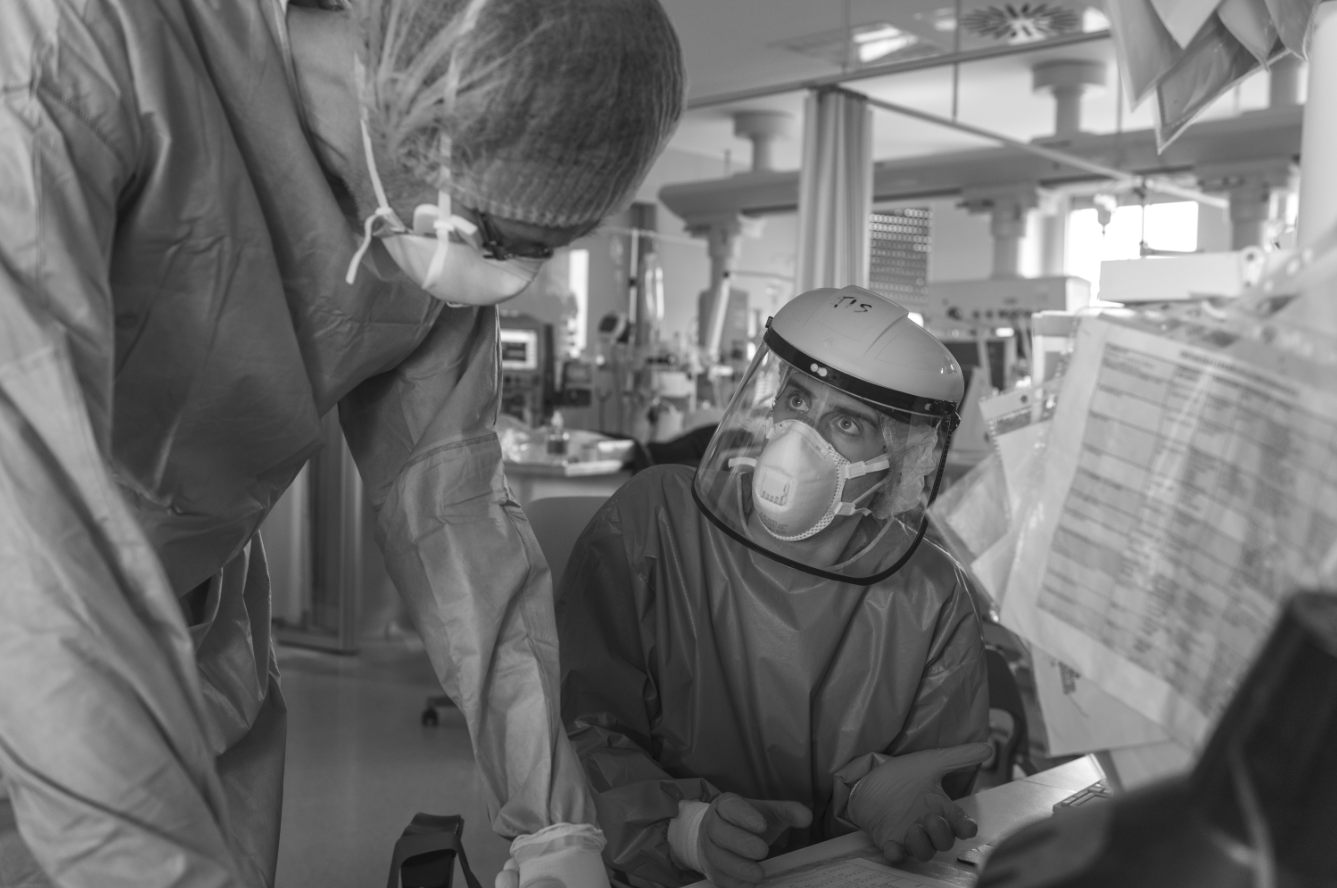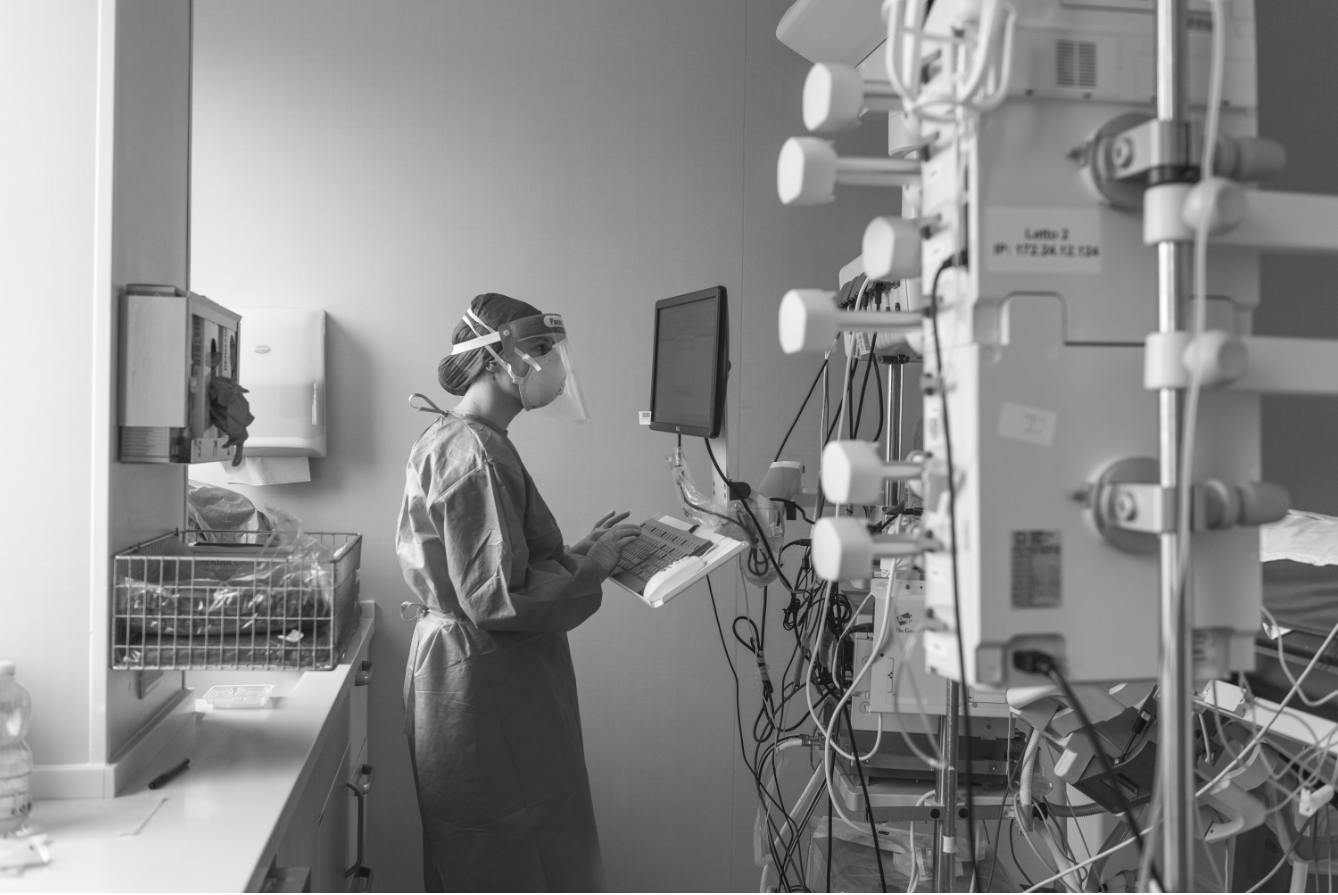On March 9th, 2020, Italy entered a total form of confinement following the spread of Covid-19 virus. Immediately, Doctors Without Borders offered its support to the national health authorities and to many colleagues engaged at the forefront of this difficult challenge.
Taking care of who cares
With this goal, Doctors Without Borders’ intervention started at the beginning of March in the hospitals of Lodi, Codogno and Sant’Angelo Lodigiano, the first epicentre of Covid-19 epidemic in Italy. Doctors Without Borders contributed to the efforts of the Lodi Socio-Health Authority (ASST) to avert the risk of infection for staff and patients and to ensure that hospitals could continue to operate despite the continuous increase in cases.
A powerful first time
The hospitals in Lodi area were the first to identify the virus in Italy and Europe, when it was still known only in China and nobody imagined a global pandemic; they were the first to manage cases and deal with the huge influx of patients; it was Doctors Without Borders’ first medical intervention on Covid-19 in the world and many humanitarian staff who have worked in Lodi are now engaged in other countries to share their experience. On a global scale, it was also the first time that health systems around the world, including the most advanced ones – such as the Italian one – faced an epidemic of this magnitude, of a lethal and unknown virus.
A mutual exchange
The meeting between Doctors Without Borders and ASST Lodi was of mutual exchange: Doctors Without Borders brought its experience in managing large epidemics, while the ASST its experience in the clinical management of a disease that no one knew yet, improving its prevention and control measures in hospital and on the ground. The meeting took place at the most tragic peak of the epidemic and was an extremely intense experience, from a human and professional point of view.
The Lodi model
The one tested in Lodi, with the help of Doctors Without Borders, is a model for managing epidemics and public health that does not focus all efforts on hospitals, but put them at the centre, as a place to be protected, creating all around a widespread cordon on the territory which involves: general practitioners, telemedicine, vulnerable communities such as nursing homes and prisons, social realities such as law enforcement agencies, storekeepers, civil society associations. With the objective to tackle the epidemic starting from the ground, reduce the number of patients upstream and leave only the most serious cases to hospitals.
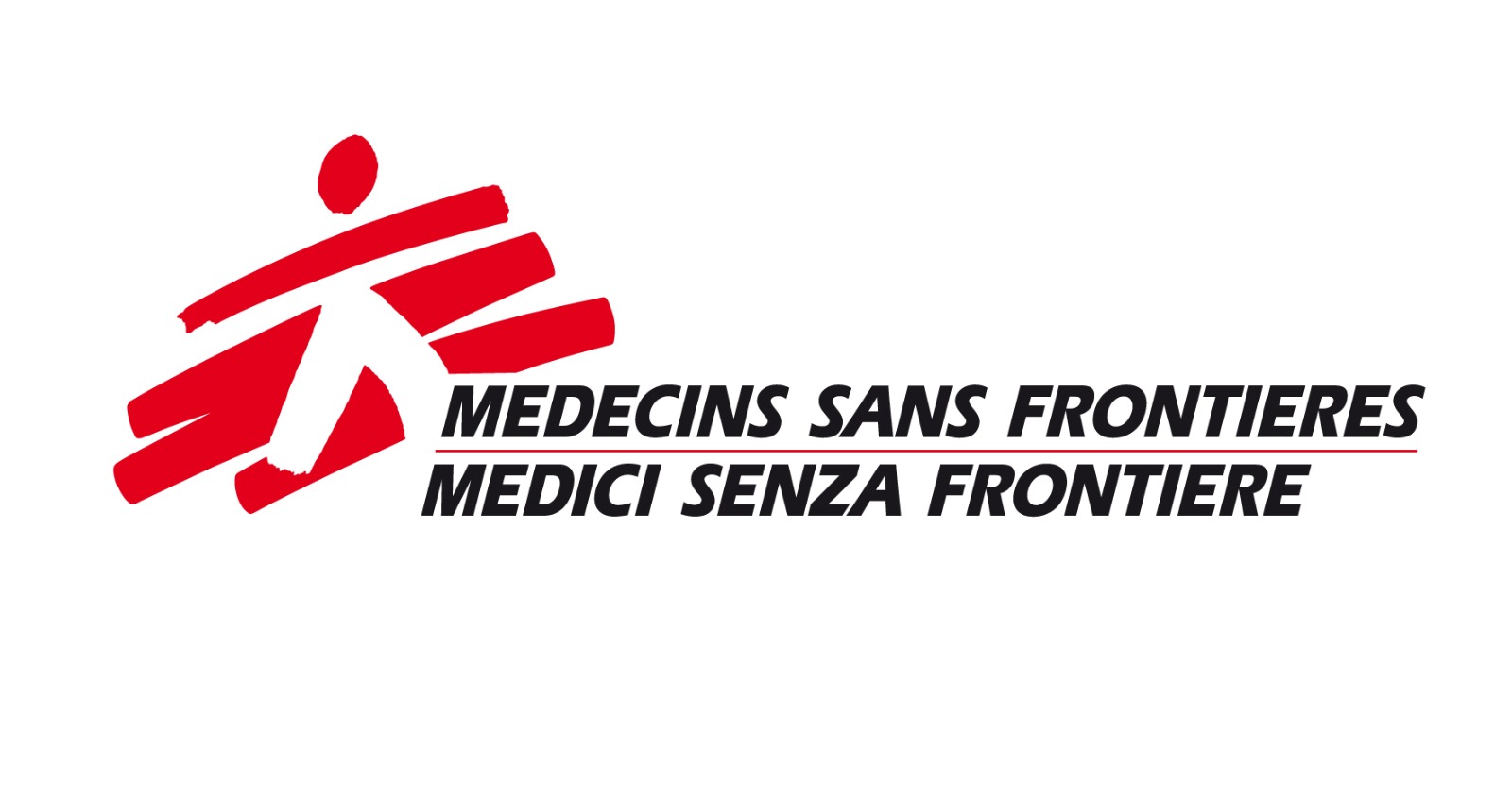
Doctors Without Borders on the front line against Covid-19
For almost 50 years, Doctors Without Borders has been offering medical-humanitarian assistance to the most vulnerable or excluded from access to medical care. It has also developed enormous expertise in the field of infectious diseases, having responded to the major epidemics that hit the planet. That’s why it was natural to intervene promptly also in Italy, in support of the health authorities.
When an epidemic breaks out, health systems suffer for the quickly exponential growth of cases. This is why, starting from Italy, Doctors Without Borders implemented numerous activities, ranging from infection prevention, to staff training, up to telemedicine. Doctors Without Borders’s work in response to Covid-19 extends to over 70 countries between new projects to combat the epidemic and the adaptation of existing ones to the new scenario.
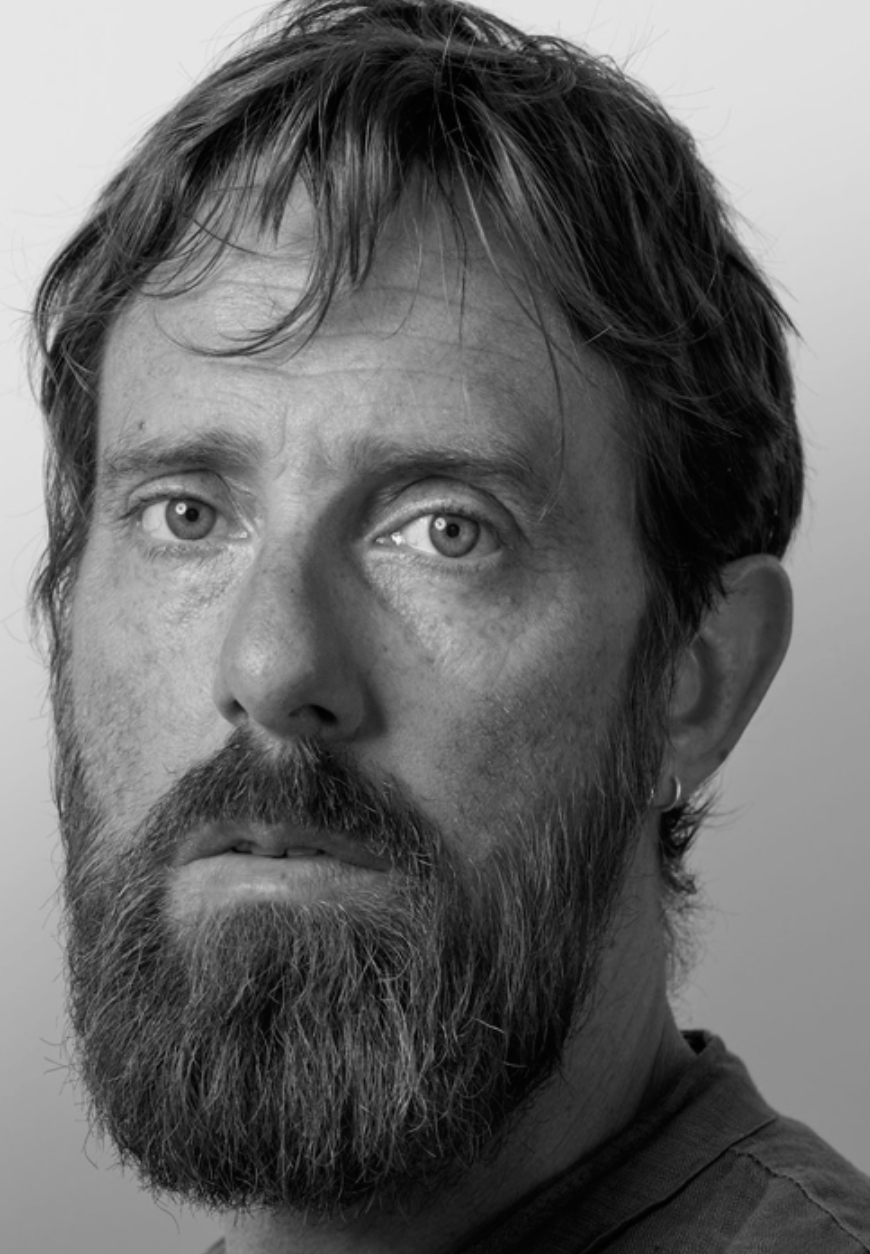
Alessio Romenzi
After working as blacksmith, driver and fridge technician, he moved to Jerusalem where he became a professional photographer. He reported crisis in Libya, Egypt, South Sudan, Syria, Lebanon, Iraq, Jordan, Palestine, Israel, Colombia, Ukraine and Philippines.
His work focuses on the aftermath of crisis on the population with particular interest on human aspect instead the warfare itself.
He works with agencies, humanitarian organisations and international and national media such as: Agence France Presse, Associated Press, Msf, Terre des Hommes, War Child, CARITAS, UPP, Save the Children, ICRC, UNICEF, FAO, UNESCO, Time Magazine, New York Times, Newsweek, Paris Match, Polka, Der Spiegel, Stern, Geo Germany, Internazionale.
Lodi, Palazzo della Prefettura
corso Umberto I, 40
FREE ENTRY
